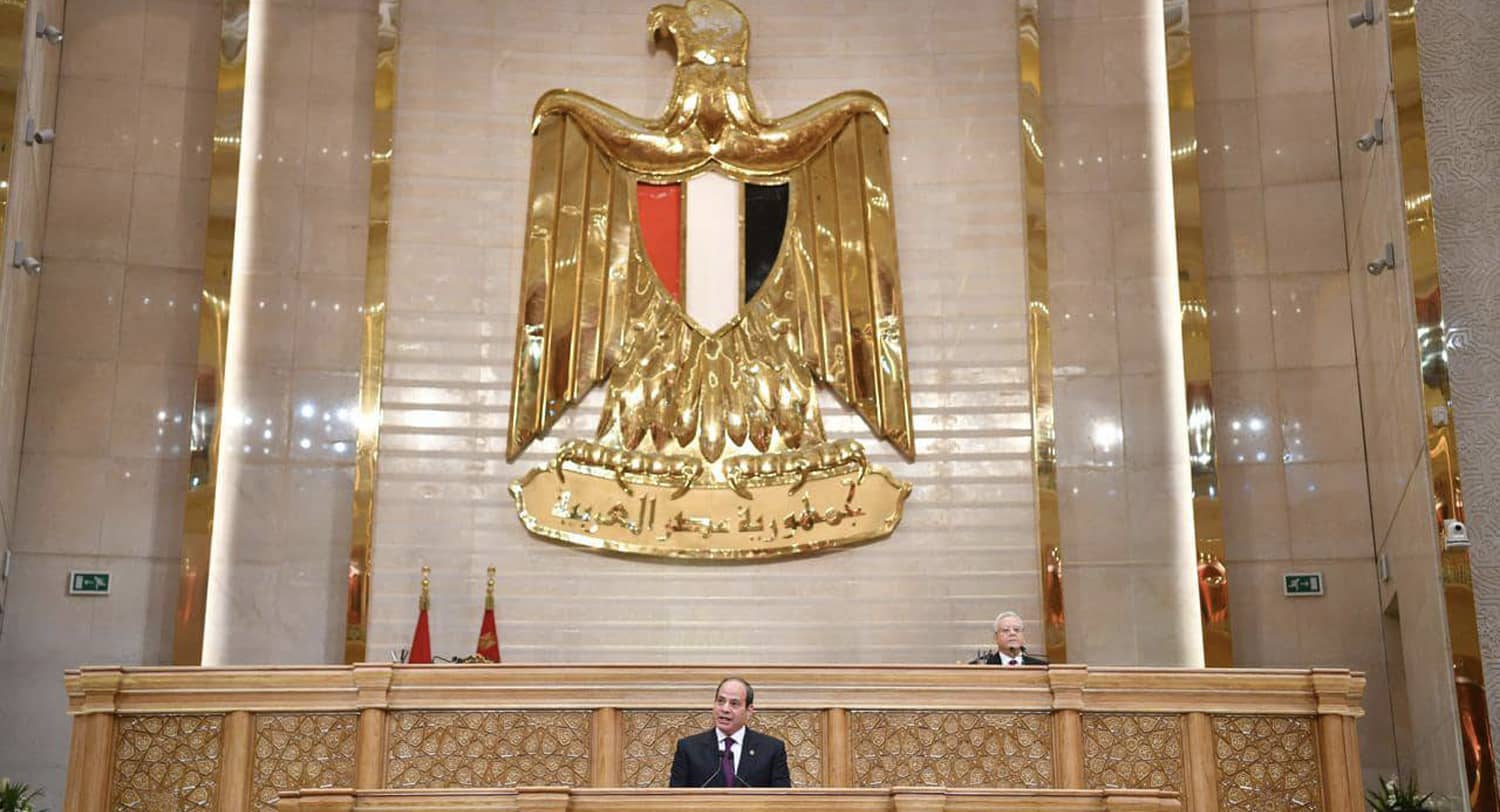As the Trump administration considers its Middle East peace strategy, one target should be a deeper relationship between the Arab world’s most populous nation and the Jewish state, one that advances beyond diplomatic formalities to include greater economic cooperation and cultural exchanges.
Since the 1979 peace treaty between Egypt and Israel, Cairo and Jerusalem have maintained formal diplomatic channels and coordinated effectively on security matters and more recently on natural gas trade. These official ties have proven resilient, but other interactions remain sparse. Israelis travel to Egypt during stable periods, but the reverse is uncommon. Egyptians seeking to visit Israel (for instance, Coptic Christians pilgrims) face administrative barriers and the potential for scrutiny by Egyptian security forces.
Civil society engagement is also underdeveloped. Egyptian artists, academics, and public figures often observe an informal boycott of Israel, and those who do not, frequently face social and professional consequences. According to a 2024 poll survey, only eight percent of Egyptians favor normalized ties with Israel. This sentiment has only hardened in the aftermath of the war in Gaza following Hamas attacks of October 7, 2023, with Egypt’s state-aligned media amplifying anti-Israel narratives.
The Egyptian government, with Washington’s encouragement, must work to discourage any backsliding so improvement in Egyptian Israeli relations do not permanently stall. A change in tone in the state-controlled Egyptian media would be a good start, followed by broadening cultural, economic and political engagement.
As US officials continue their discussions with Egyptian President Abdel Fattah el-Sisi—particularly in the context of post-conflict planning for Gaza—there is a critical opportunity to elevate the conversation. The question is not whether peace between the two countries can be preserved, but whether it can be deepened and diversified into a more inclusive and sustainable model.
One of the most persistent challenges lies in religious messaging. Antisemitic rhetoric continues to circulate within influential institutions. In a recent television appearance, Sheikh Ashraf al-Feel, a prominent cleric affiliated with state-funded Al-Azhar University, described Jews as “killers of the prophets.” Al-Feel, with millions of followers, plays a powerful role in shaping public opinion.
President Sisi has spoken on multiple occasions about the need to reform religious discourse. Early in his presidency, he warned against dogmatic thinking and called for a renewal of ideas. More recently, he emphasized that genuine reform must go beyond correcting misconceptions and instead reflect the inclusive, humane essence of religious teachings. These words must now be matched with action. The United States should encourage Cairo to hold religious institutions accountable and to support messages of tolerance and interfaith coexistence.
Restrictions on travel further inhibit the potential for mutual understanding. Israel remains among a list of countries Egyptians cannot visit freely; any travel requires special authorization from national security bodies. These restrictions send a powerful signal that normalization is neither welcome nor safe. Easing these policies—even incrementally—could allow new forms of interaction that humanize the “other” and begin to reverse long-held misperceptions.
Academic exchange represents another underutilized avenue. Thirteen Egyptian universities offer Hebrew-language programs, yet graduates of these departments are prohibited from studying or conducting fieldwork in Israel. Establishing an Egyptian academic center in Tel Aviv, mirroring the Israeli Academic Center in Cairo, would help foster scholarly dialogue. Complementing this with targeted student exchange programs could cultivate a generation of thought leaders who understand and respect one another’s societies.
Economic cooperation also remains underdeveloped. With Egypt facing a prolonged economic downturn and growing challenges related to water scarcity, collaboration with Israel in areas such as irrigation, desalination, and agricultural innovation could yield significant benefits. Yet business ties remain heavily restricted, with only a small number of Egyptian companies permitted to operate across the border—typically under strict oversight. Removing these constraints would not only improve livelihoods but also serve as a confidence-building measure between the two nations.
Peace is not defined solely by the absence of conflict, but by the presence of dialogue, cooperation, and trust. Advancing Egypt-Israel normalization will not happen overnight, but with consistent encouragement and strategic incentives, it is possible to move from cold peace to enduring partnership.
If the Trump administration aims to leave a lasting legacy in the Middle East, there is no better place to start than by turning a decades-old treaty into a fully realized model of reconciliation.

